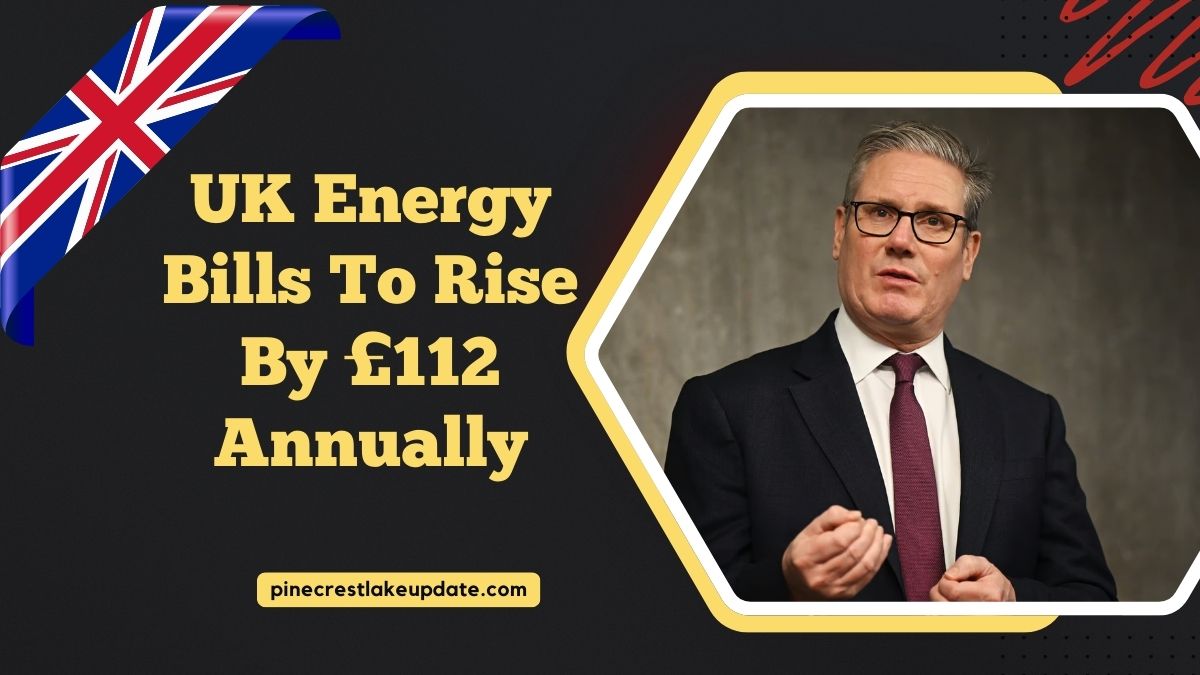As of 2025, UK households are bracing for a potential £112 annual increase in energy bills, driven by a rise in the energy price cap and global market volatility. For families already navigating cost-of-living challenges, this jump could significantly affect monthly budgets.
The good news? With a proactive approach, you can cut energy consumption, unlock government support, and find better tariffs to minimize the impact on your finances.
Quick Summary – Energy Price Hike 2025
| Topic | Details |
|---|---|
| Projected Increase | £112/year (based on new Ofgem energy price cap) |
| Key Causes | Global energy prices, inflation, renewable energy transition |
| Energy Cap Change Date | April 2025 (next update: October 2025) |
| Relief Options | Energy savings, government grants, switching suppliers |
| Potential Savings | Up to £370 annually with smart usage and upgrades |
Why Are Energy Bills Rising in the UK?
Several key factors are contributing to the £112 increase in average annual energy bills:
- Rising wholesale gas and electricity prices globally
- Geopolitical conflicts impacting fuel supply chains
- Increased investment in renewable energy infrastructure
- Higher standing charges and distribution costs passed to consumers
The Ofgem energy price cap, which limits how much suppliers can charge, is adjusted twice a year. The recent adjustment reflects increased operational and supply costs, which translate directly into higher household bills.
Understanding the Energy Price Cap
The energy price cap includes two main elements:
- Standing Charges – Fixed daily charges regardless of energy use
- Unit Rates – The cost per kWh of gas and electricity used
Though designed to protect customers from excessive pricing, the cap still rises and falls with wholesale energy markets.
How Energy Pricing Works
To control your bill, it’s important to understand how it’s calculated:
| Component | What It Means |
|---|---|
| Unit Rate (kWh) | The price for each unit of energy consumed |
| Standing Charge | Daily fixed fee for having energy supplied |
| Tariff Type | Fixed or variable – affects whether prices stay constant or change |
How to Protect Your Wallet: Practical Tips
1. Reduce Energy Usage Smartly
- Turn off standby devices to save up to £100 per year
- Use energy-heavy appliances during off-peak hours
- Lower thermostat by 1°C to save up to 10% on heating costs
- Dry clothes naturally instead of using a tumble dryer
2. Make Energy-Efficient Home Improvements
- Add loft and wall insulation to retain heat
- Install double glazing to reduce heat loss
- Use smart thermostats to schedule heating effectively
- Switch to LED bulbs that use 80% less electricity
3. Switch Suppliers or Tariffs
- Use comparison sites like Uswitch or MoneySuperMarket
- Look for fixed-rate tariffs to avoid future increases
- Some suppliers offer new customer discounts or green energy incentives
Government Support Schemes Available in 2025
The UK government offers several schemes to help eligible households manage energy costs:
| Scheme | What It Offers |
|---|---|
| Warm Home Discount | £140 off annual bills for low-income households |
| Energy Company Obligation | Grants for insulation and heating system upgrades |
| Boiler Upgrade Scheme | Support for heat pump and low-carbon system installation |
Also, contact your energy supplier for personalized payment plans or hardship support programs.
Rising UK energy bills in 2025 are a concern, but they don’t have to drain your budget. By understanding your bill, cutting unnecessary usage, and accessing available support, you can stay ahead of rising costs.
Now is the time to review your current plan, invest in energy efficiency, and explore financial assistance options. Every kilowatt saved and every pound protected counts.
FAQs
Will everyone’s energy bill go up by £112?
No. The £112 increase is an average based on typical use. Your exact rise depends on usage, region, and tariff.
Can I avoid the energy price hike altogether?
You can’t avoid the cap increase, but you can reduce the impact by using less energy and switching suppliers.
Is there financial help available for vulnerable households?
Yes. You may qualify for the Warm Home Discount, ECO grants, or Boiler Upgrade Scheme. Check with your supplier or local council.

